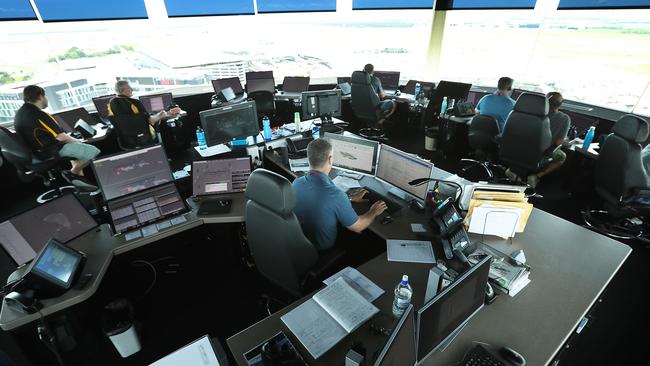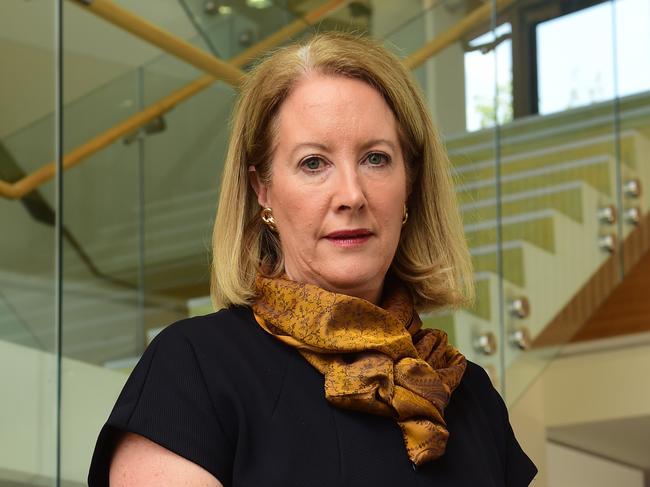Review finds culture of bullying, harassment in Airservices Australia
A review of air traffic control operations demands urgent action to end an ‘unsafe’ culture of sexual harassment and bullying.

The government organisation responsible for the safe operation of air traffic in Australia has been found to have a culture of bullying and sexual harassment in need of “urgent attention”.
Airservices Australia engaged lawyer and former sex discrimination commissioner Elizabeth Broderick to undertake an independent review of the workplace culture last year.
It followed a number of incidents resulting in widespread disruption to airline schedules, linked back to absenteeism at Airservices Australia.
As part of the data-gathering process, Ms Broderick’s review team conducted 26 focus groups including five with women only; undertook 197 individual interviews, and received 81 confidential written submissions.
More than 2100 people responded to a survey, or 58.1 per cent to employees, which was described as “very strong”.
Among the most disturbing findings were in the areas of bullying and harassment. Half of the respondents said they had been bullied at some point in their time at Airservices, and 20 per cent had experienced some form of sexual harassment.
Of even greater concern, was the very low rate of reporting of such behaviours which Ms Broderick’s 68-page report said “spoke to a culture that is not psychologically safe”.
“People do not feel safe to disclose an issue relating to unacceptable behaviour. This theme featured frequently in focus group discussions and interviews and was a key issue in many of the submissions,” she wrote.
“Many participants felt extremely let down by their managers and, of even greater concern, by people services in the organisation’s responses to their formal complaints.”
There were also several examples provided of the “toxic” work culture, with one respondent likening the Airservices Australia workplace to “Lord of the Flies” or “Animal Farm”.
“The culture here is just pretty much toe the line, don’t question anything, don’t have a different idea about something, don’t stick your neck out and you will be OK,” said another respondent.
“It’s a very ingrained male-dominated culture. There is not always merit in positions and promotions.”
Others took aim at the management style, suggesting those in charge had “zero people skills”.
“Most senior managers develop through the system of Airservices and get promoted due to good technical skills, not good people skills. This cycle needs to be broken as each generation of managers repeats the poor behaviour,” said one employee.
“The controller groups themselves are very tight knit and work well together. The problem is the managers. They have no leadership or people skills. They have no understanding that those working for them are people, not robots.”

Ms Broderick found there were positive elements to the Airservices Australia culture, “in particular the many hundreds of employees who are enthusiastic and committed to the jobs they perform and the contributions they make daily to aviation safety”.
But she said there were distinct areas that required immediate action and reform, including the levels of bullying and sexual harassment which needed to be addressed “as a matter of urgency”.
“The leadership capability across all levels of Airservices needs strengthening,” said Ms Broderick.
“Good leadership starts at the top, but strong, inclusive and courageous leadership across an
organisation creates a positive and inclusive culture.”
To address those concerns, Ms Broderick provided a “framework for action” including a recommendation for a gender-balanced cultural reform board to be established, chaired by CEO Jason Harfield.
His response to the report included a commitment to adopt the vast majority of recommendations in coming months.
“We are strongly committed to fostering a culture that is diverse, inclusive and respectful,” said Mr Harfield. “Starting with us, we will embed this throughout the organisation.”




To join the conversation, please log in. Don't have an account? Register
Join the conversation, you are commenting as Logout